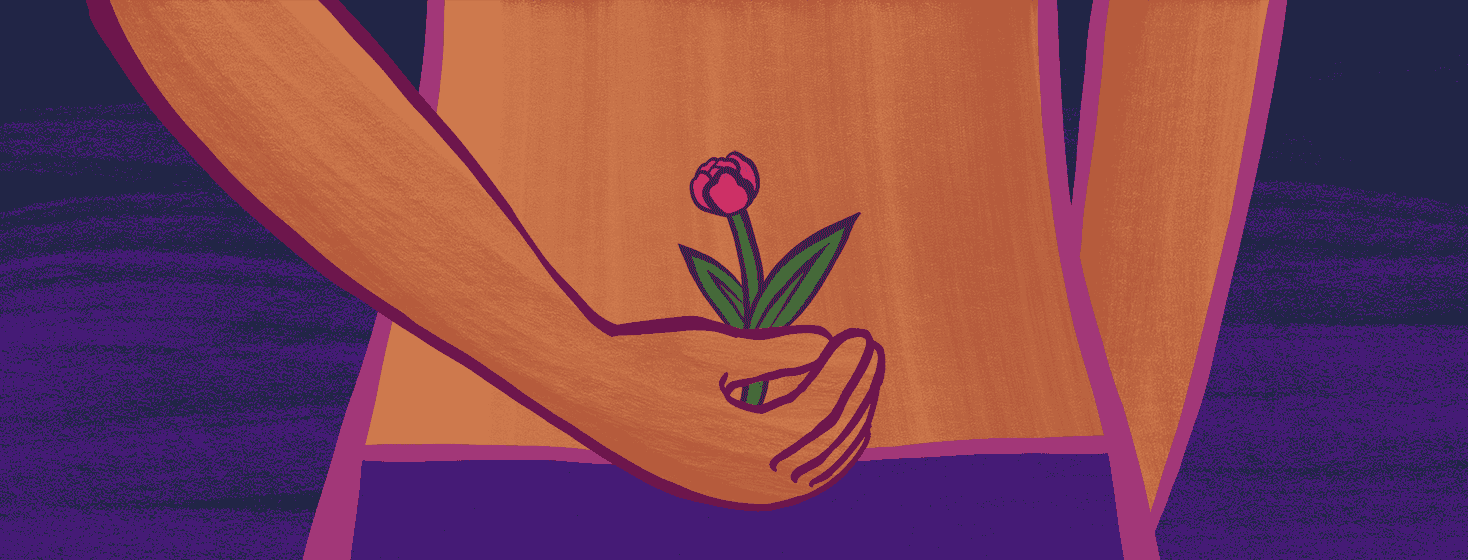Intimacy After Cystectomy
I am a sex-positive person. I think education and conversations surrounding sex and intimacy should be normal. I am even more passionate about these conversations being part of all the resources cancer patients are given. Cancer takes so much from us; intimacy, pleasure, and, yes sex, does not have to be part of the wreckage.
I was not offered any pre or post-surgical counseling on what exactly a radical cystectomy and hysterectomy would do to my ability to have sex. The closest I got to an idea that things were significantly changed was an offhand comment from my surgeon saying he didn't have a lot of space to work with and things "are smaller" now.
I was only 2 weeks out from surgery, still reeling from the trauma, weeks of pain, a massive surgery, and being told I had a deadly disease. I had no idea what "things" were smaller. It took reading someone's post on a women's-only bladder cancer group that got me clued into the idea that something was probably very different.
Sex after a radical cystectomy
I saw women commenting about the vaginal canal being shortened, sometimes dramatically or almost removed due to the RC and hysterectomy and how invasive their tumor was.
Once I was fully recovered from surgery and well into maintenance treatment when I had to face facts. My anatomy had been altered, negatively impacting various facets of my intimate life with my spouse.
Receiving confirmation years later
As frustrated as I was, the embarrassment was greater. It took 2 more years to seek out medical help finally. I met with a gynecologist and an endocrinologist to find out how much physically and hormonally had been altered.
I was incredibly angry and sad to have medical confirmation that I had a much shortened vaginal canal which cannot be fixed. This means that the physical act of sex had to look much different now.
What I hadn't expected was to find out my hormones were a wreck. My surgeon had left my ovaries to prevent me from experiencing menopause at 28, but the surgical trauma, treatment, and long-term vitamin deficiency meant that I had zero libido.
Getting my libido back
Now I know sex is not the most important part of a relationship or marriage, but it was and is very important to me. I also refused to go along with the idea that at just 30, I would no longer be able to be traditionally intimate with my husband.
Over the last 2 years, I have consulted with pelvic floor therapists and worked closely with my gynecologist and endocrinologist to improve my abilities and libido. It has been a slow battle, but things have improved.
It has just taken being very open and very vulnerable with my medical team.
Make it important to your medical team
Not every woman will experience such profound changes to their anatomy and hormones. But if you, unfortunately, find yourself a member of this club, I have 2 recommendations to help you reclaim your ability to be intimate after cystectomy.
Get an endocrinologist on board to help you navigate any hormonal changes, and consult with a pelvic floor therapist as soon as you are cleared to do so post-surgery. Early action will give the best results.
If sex is important to you, make it important to your medical team. Cancer patients are people before they are patients and deserve to lead full lives, including intimacy after a radical cystectomy.

Join the conversation